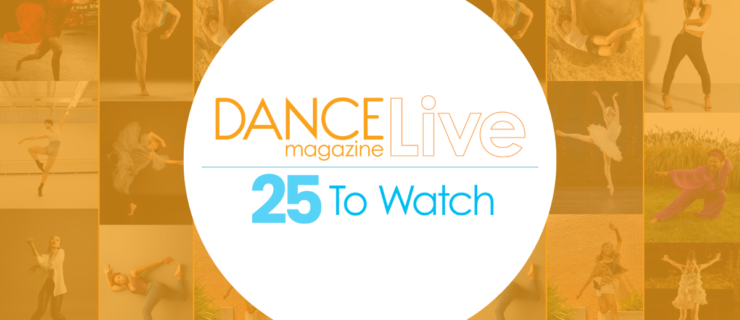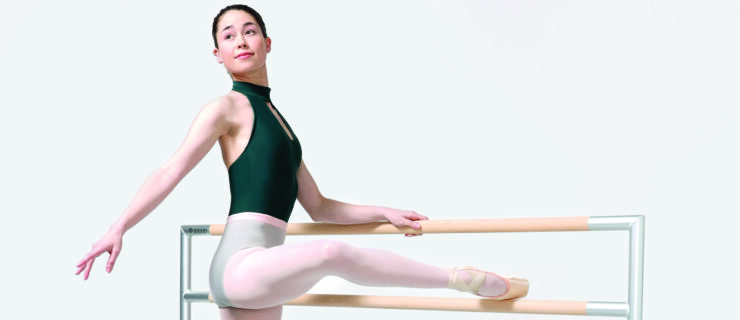Nine Ways to Love the Woman You're Becoming
It seemed like everything changed overnight. Suddenly, 14-year-old Karen Black’s* breasts didn’t fit into her favorite camisole leotard, her thighs rubbed together in weird places, and she couldn’t get through 10 fouettés without becoming winded.
What was going on?
Puberty.
Your body will change a lot from now until your twenties. You’ll start your period, develop breasts and grow pubic hair. You may also develop an insatiable appetite, put on weight, or grow so fast that some steps become more difficult than they used to be.
As a dancer, this process can be particularly difficult. Maybe you dread changing in the locker room, because you think that everyone is staring at you. Perhaps none of your friends have started to mature physically and you feel uncomfortable about your figure. Maybe you’re the only one (or you feel like the only one) who hasn’t started to develop yet. To make matters worse, not only do you have to wear tight clothes and stare at yourself in the mirror, but you also stand in the spotlight and perform in front of everyone you know—all while feeling like an alien has taken over your once-familiar body.
The most important thing to keep in mind is that you aren’t alone! Here are some other ways to make growing up a positive experience.
1. Don’t compare yourself to others.
Every dancer is different—you may covet your friend’s fabulous feet, but she might envy your long legs. Lamenting your own appearance because you don’t think it’s as great as someone else’s will only frustrate you, because it’s beyond your control. Remember that dancers have many body types, strengths and weaknesses.
2. Try other dance forms.
If you feel terrible about yourself after, say, a ballet class, add another kind of class, like jazz or hip hop, to your schedule that makes you feel great. It’s important to give yourself positive experiences with movement, even if that means just dancing around your living room to your favorite hip-hop artist.
3. Understand your own biology.
During puberty, it’s normal for some things that were once easy to become seemingly impossible. Maybe you could do triple pirouettes, and now you struggle to balance in passé. Don’t panic: You’ve probably just had a growth spurt, and you need time to adjust to your new body. With practice and time, you can get it back.
4. Accept yourself—and your peers.
You may be tempted to poke fun at your friends to soothe your own insecurities, but this won’t contribute to a supportive training atmosphere and may even backfire when people belittle you. Think of this phase of your life as something that you and your friends are in together! Focus on building each other up and on being the best dancers you can be.
5. Embrace your appetite.
Some girls put on a layer of fat prior to a growth period. In these instances, you may grow out before you grow up. If you aren’t eating enough of the right foods, you’ll interfere with this process and suffer health consequences down the road. “Usually with a growth spurt comes increased metabolism and increased appetite,” says Dr. Michelle New, clinical psychologist, reviewer for website KidsHealth and a former dancer. “You’re hungrier, and a lot of girls are afraid of that.”
Listen to your body. If you ignore your appetite and stop eating, you may actually stunt your vertical growth and end up heavier than you would otherwise. “Buy bigger jeans and keep being healthy and active,” says New. “It’s a normal part of growth and it won’t last forever.” If you really think you’re overweight—or a teacher tells you to slim down—see a licensed nutritionist before starting any diet.
6. Don’t hide.
If your school has a dress code, there isn’t much you can do to “cover up.” But even if you want to drown yourself in baggy sweats, hiding isn’t the best way to cope. “It gives the message that you should cover up when you start showing signs of womanhood,” New explains. If you’re really uncomfortable, ask your teacher if you can wear a fashionable shrug, a skirt or warm-up shorts, but be prepared to conform to the uniform. Find other ways to make yourself feel good—try out a new hairstyle or a new cut of leotard.
7. Talk to someone older.
You may feel like you’re suffering through something that no one has ever suffered before. “Whether you feel alone because you haven’t gone through it yet or your body is becoming a woman before you feel emotionally ready to be a woman, there is somebody who’s been through that,” says New. “One hundred percent of women go through this. No exceptions.” Talk to an older dancer, family member or teacher about how you feel. When you educate yourself, you’ll feel empowered.
8. Know that it’s OK to be modest.
If you dread the locker room, it’s perfectly acceptable to shower at home or change in a bathroom stall. Everybody has their own comfort level, and you shouldn’t feel pressure to put yourself on display if you don’t want to. You control your own body in and out of the dance studio. In fact, developing a sense of privacy can actually mean you have good self-esteem, because it shows that you’re taking ownership
of yourself.
9. Explore other areas of creativity.
Broadening your horizons to include other forms of expression can be helpful when you’re going through an “awkward” phase. Join your school’s art club, audition for a local musical-theater production, or learn to play an instrument. All of these activities will contribute to your artistic development as a dancer, while taking the focus away from your physical being for a while.



